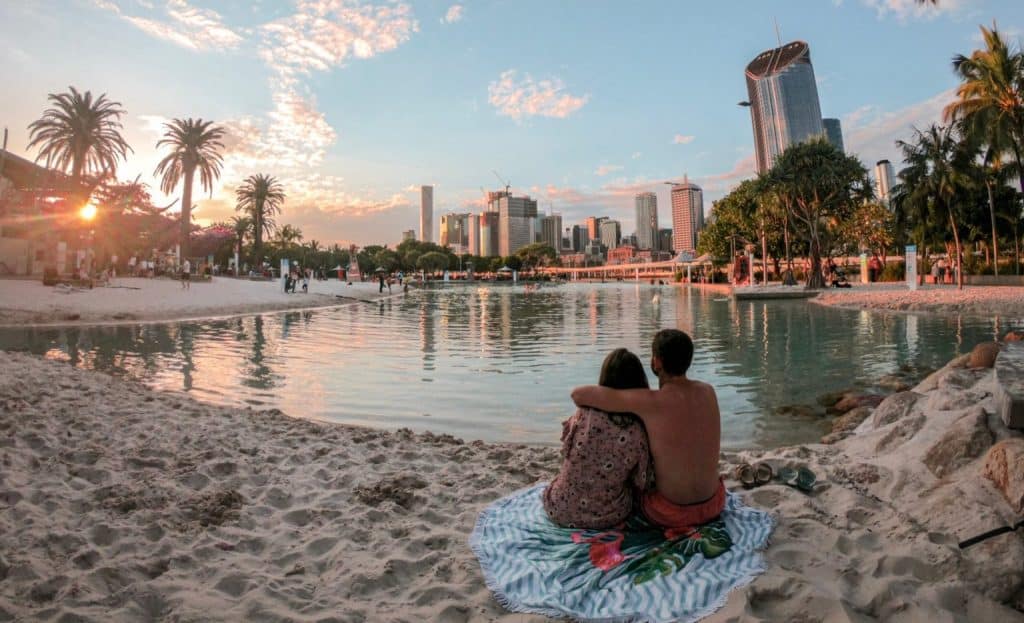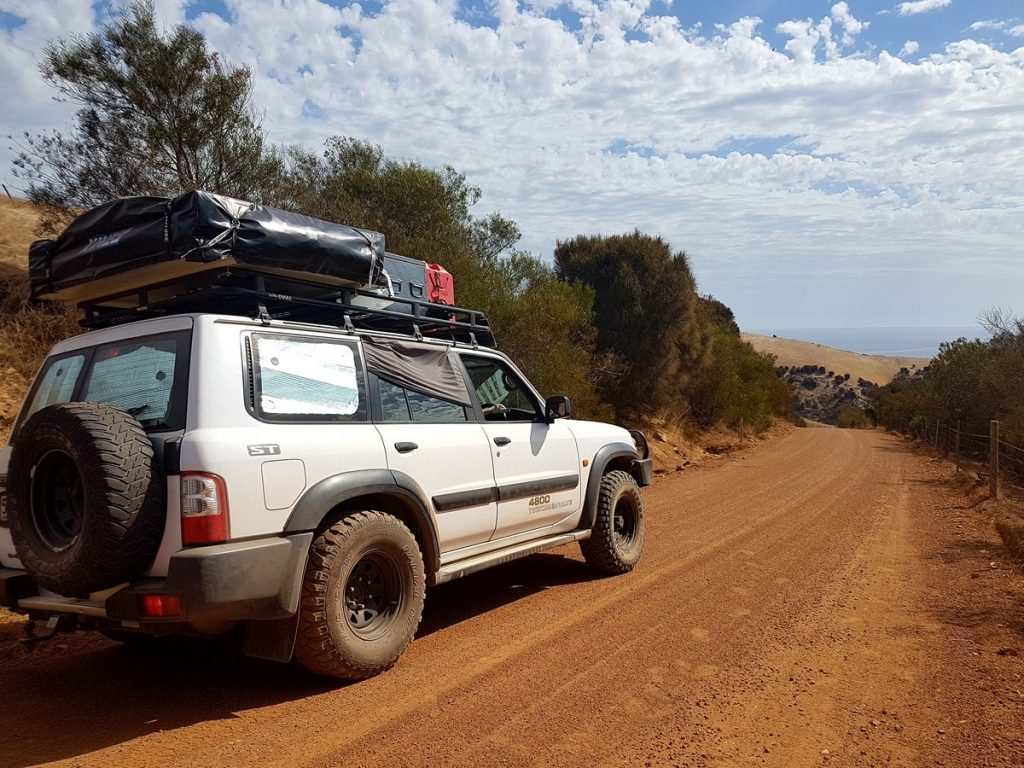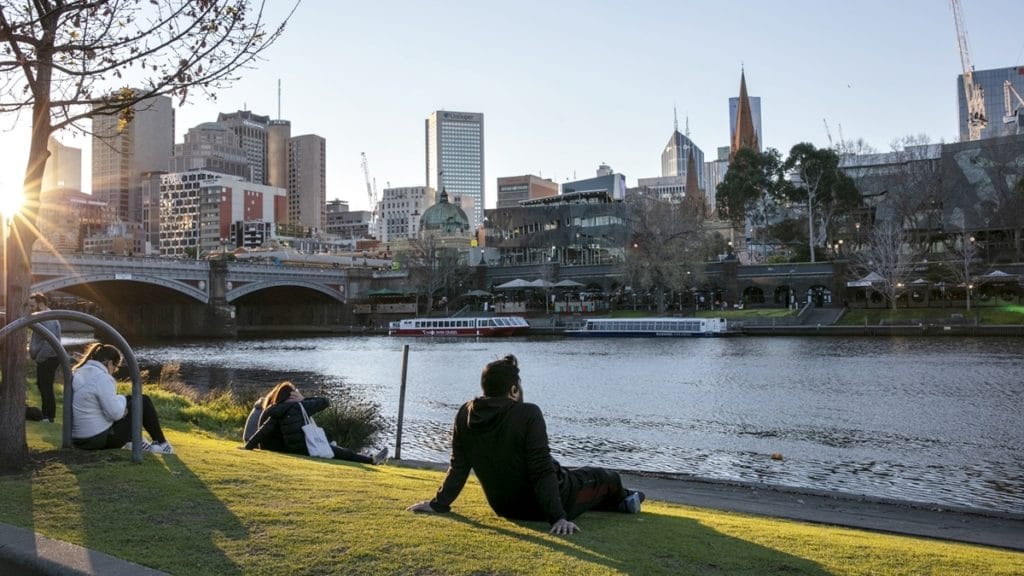Planning to spend a year in Australia on a Working Holiday Visa (WHV)? Then it’s essential to start preparing your budget. A certain number of expenses need to be anticipated even before landing in the country. Once there, a minimum of savings is necessary to cover your expenses while you search for a job or embark on your adventures. So, what budget do you need to go to Australia on a Working Holiday visa? Here are all the answers to your questions !
Table of Contents
Initial Costs: Visa, Insurance & Flights
Before you touch down, budget for mandatory expenses.
Passport costs
A passport is required to apply for a Working Holiday Visa. To get a passport for the first time or renew an existing one, you should apply several months in advance of your departure. Passport fees vary from country to country – in the UK it costs £82.50 to apply online and £93 for a paper application. In Ireland it costs €75 online.
If you already have a passport, make sure it’s valid for at least the duration of your stay in Australia.
Visa Application
The Working Holiday Visa (subclass 417/462) costs $650 (up to July 2025). UK passport holders can now apply up to age 35 under the new Free Trade Agreement rules. Get your visa before buying your plane ticket or taking out travel insurance.
⚠️ Make sure you complete your visa application on the official Government website and not any other website!
WHV Travel Insurance
For those who are planning to spend a year or more in Australia on a Working Holiday Visa, we recommend getting WHV travel insurance. It is a large but essential expense that will cover your costs in the event of infectious disease, accident, hospitalisation, repatriation, sports accidents (depending on your policy), or in the event of civil liability, loss or theft of luggage.
Essential for your peace of mind, travel insurance can cost between AUD 400 and AUD 800 for a year, depending on coverage.
There are many different travel insurance companies out there, and the quality of their services, benefits and prices varies a lot. It is important to compare them properly and find the one that best suits your needs. We have carried out a comparison of the various insurers and their services. We also have special discounts with several of the best companies.

Flights
Your plane ticket is going to be your biggest expense before your departure. Prices vary between €1,200 and €1,900 for a round trip (depending on the time of year) and a minimum of €700 (with 2 or 3 stopovers) for a one-way trip. In saying that, this rate is really the cheapest you can find on a flight comparison tool. Prices go up very quickly to around 900€. Try to avoid high season (July/August and December/January). Prices also vary depending on your departure city and your arrival city in Australia (Sydney, Brisbane, Cairns, etc.).
Funds requested by the Australian government
As part of your WHV application, the Australian government requests proof that you have at least $5000/person or about £3000 in your bank account. This might seem like a lot of money, but bear in mind that the cost of living in Australia is quite high. So give yourself a comfortable budget that will allow you to support yourself if it takes a while for you to get a job.
💰 BUDGET TOTAL PRE-DEPARTURE
Visa: £340
Passport: £82.50
Insurance: £342
Flight ticket: £730
Savings: £3073
TOTAL: £4567 (£1495 + £3073 savings)
Expenses once in Australia
The currency in Australia is the Australian dollar. The rate varies constantly but on average £1 = $2.08 (rate April 2025).
The cost of living is quite high, but salaries are higher than in the UK. Your main expenses will be divided between housing, food, transport and tourist activities. Of course, they will not be the same depending on your lifestyle: settling in a city or going on a road trip. In Australia, everything is paid by the week! Wages and rents are paid every 7 days, or every 15 days maximum.
A different budget depending on whether you are in a city or on the road
You will need a higher budget if you live in the city, mainly because of rent. You can reduce this expense as much as possible by living outside the city centre or sharing accommodation with several people. However, make sure you are close to public transport.
On a road trip, you won’t have to pay rent because your vehicle will be your home. However, the more you travel, the more you will spend on fuel. Beyond that, food costs will depend on your habits and the budget you want to devote to it!

Budget to plan for a road trip in Australia
Planning a road-trip in Australia demands more than just wanderlust—it requires a solid budget, especially if you won’t be earning throughout your journey. Even if you intend to pick up work along the way, job opportunities can take time to secure, leaving you reliant on your savings for essentials and unexpected costs.
Your total road-trip expenses will hinge on three main components: whether you rent or buy a vehicle; all associated motoring costs (fuel, insurance, maintenance, and camping or safety gear); and your day-to-day outlays for food, activities, and incidentals. Deciding between renting and buying is the first—and one of the biggest—financial choices you’ll make.
Campervan or motorhome rental in Australia
For brief adventures of a month or so, renting a campervan or 4WD can be more economical. Typical rental rates start around A$70–100 per day off-peak, rising to A$120–150 in high season. However, if your stay extends beyond six months, purchasing a used vehicle often makes better financial sense.
For your motorhome or campervan rental use an online price comparison tool. Motorhome Republic, for example, often offers good discounts and works with all vehicle suppliers in Australia. This will allow you to compare different types of vehicles and filter the results according to your needs.
Buying a vehicle
Quality second-hand cars with minimal equipment generally begin at A$4,000, while fully outfitted campervans range from A$9,000 to A$15,000 depending on make and mileage. On top of the purchase price, factor in annual registration (rego) fees of A$600–800 and Compulsory Third-Party insurance. At the end of your trip, you can sell your vehicle—often recouping up to 70–80 % of your initial outlay. Even if you use your van for just two or three month-long road trips scattered over a year, this strategy can still beat the aggregate cost of multiple rentals.
🚗 GREAT DEAL : Your customized vehicle available as soon as you arrive in Australia !
If you’re planning to go on a Road Trip as soon as you arrive in Australia, the best option is to go through backpackercars.com. They offer all types of vehicles for sale (cars, vans, and 4x4s) and customize them according to your needs. The advantage is that all mechanics are checked, the paperwork is in order, and you can leave with it as soon as you arrive in Australia.
📍 Vehicles available in Sydney, Melbourne, and Perth
📝 Avoid all the paperwork
👨🔧 Avoid unpleasant mechanical surprises with a reliable vehicle
🚗 Pick up your vehicle as soon as you arrive in Australia
🚨 BONUS : 1 year of free assistance (Roadside Assistance) with our PROMO CODE : BACKPACKERS
💰 We have a road trip budget calculator to estimate your costs better. Calculate your expenses according to your route and needs here.
Expenses on the road
Your weekly road trip budget t will fluctuate with how far you drive, where you camp and how you eat. Here’s a realistic breakdown using 2025 figures:
Driving & Fuel
Assuming you cover 100 km per day in a van that consumes 10 L/100 km, you’ll burn 70 L each week. With Australia’s national average petrol price at A$1.79/L (April 2025), that works out to roughly A$125/week on fuel. Fuel stops in remote Outback roadhouses can run 20–40 c/L higher, so plan to top up in regional centres whenever you can .
Food & Groceries
Cooking most meals yourself from supermarket staples—rice, noodles, tinned goods and seasonal veggies—keeps costs low. Expect to spend about A$120–150/week on groceries if you shop sales and budget chains like Aldi.
Camping & Accommodation
Powered caravan-park sites typically charge A$30–40/night. By leveraging loyalty programs, booking apps like WikiCamps or negotiating “stay-4-pay-3” deals, you can often secure your fourth night free—bringing your effective rate down to ~A$30/night.
Activities & Extras
Set aside funds for one paid excursion per person each month—snorkelling trips, guided hikes or cultural cruises cost A$150–200 apiece. Smaller incidentals—laundry, showers or coffee—add another A$30–50/week.
Work related expenses: Bank Account & TFN
Apply online for a Tax File Number (TFN)—it’s free and essential to avoid steep withholding rates when working in Australia.
Opening a bank account in Australia won’t cost you anything. You will need to visit an agency with your passport and a postal address.
Work Gear: Depending on your job, you may need to invest in specific clothing or equipment, such as work boots, protective gears, etc.
⚠️ Emergency Fund: Always have an emergency fund of at least AUD 1,000-2,000 for unexpected expenses or emergencies.

Budget to plan for living in an Australian city
Whether you arrive in Sydney, Perth, Brisbane or Melbourne, your expenses will be quite high during your first few weeks. Be aware that depending on where you are, the cost of living can vary greatly. In general, life in big cities will be more expensive than in small Australian cities, towns or rural areas. This is because rent is more expensive, and you’re more likely to spend more on outings to restaurants, bars etc. Food and gas, on the other hand, are cheaper in big cities.
Accommodation on a Budget
Youth hostels
On arrival or for a short stay, hostels are a practical and economical solution (from AUD $30 per night). Note that it is often more advantageous to book a full week to get discounts (-10% or 1 night free!). The prices vary a lot depending on the time of year and the location of your hostel. Booking.com is one of the most popular sites for booking hostels in Australia. Allowing you to compare rates and make your bookings online. Of course, this serves as a temporary solution, especially for your initial days in Australia.
Sharehouse
Prices vary depending on the city, location, number of housemates, and of course the condition of the accommodation.
In central Sydney, you can expect to pay around $350 per week. In smaller cities, it is possible to find accommodation for about $200 a week.
Work-for-Stay & House-Sitting
Use Workaway or HelpX to swap 4–5 hrs of light labour for free room & board in rural B&Bs, small farms or eco-lodges. House-sitting via MadPaws or Aussie House Sitters can secure you fully furnished digs in exchange for pet or property care.
Food & Groceries
Self-catering is key to staying under budget. Weekly groceries at Aldi or Coles average A$100–140, focusing on rice, pasta and seasonal produce. Pubs and casual diners offer lunch specials for A$12–15, and supermarket “Quick Sale” sections (end-of-day markdowns) can slash bread, dairy and deli items by 50 %.
If you live in a hostel: Benefits are often included in the room rate: breakfast included, free drinks, rice, pasta and condiments available for free etc.
For extras:
To buy alcohol, budget on average $20 for a pack of 6 beers, $5 for a bottle of wine (low-end), and $50 to $70 for strong alcohol (vodka, rum, etc.).
Transport: Free, Cheap & Flexible
Australia’s distances demand smart transport choices. In Queensland, Translink charges a flat A$0.50/trip on all buses, trains, trams and ferries—no caps, no zone fees. In Sydney, load an Opal Card: daily caps of A$18.70 (Mon–Thu) and A$9.35 (Fri–Sun) keep costs predictable. Greyhound’s Whimit Pass starts at A$309 for 7 days unlimited (Melb–Cairns).
Work related expenses
- Tax File Number (TFN): Free to apply, but essential for any job in Australia.
- Bank Account: No cost for opening, but necessary for receiving your salary.
- Work Gear: Depending on your job, you may need to invest in specific clothing or equipment, such as work boots or a suit for office work.

Earning Power: Jobs & Wages
Australia’s national minimum wage sits at A$24.10/hr or A$915.90/week (38 hrs) as of 1 July 2024.
Backpackers often pick up work in hospitality (A$25–30/hr), fruit-picking (piece-rate or A$24–26/hr), or warehouse/temp roles (A$28–35/hr). Aim for 38–48 hrs/fortnight in term and full-time in breaks; rosters on weekends and nights attract penalty rates.
- Skilled Professionals: Salaries for skilled professionals can vary significantly. For example, IT professionals, engineers, and medical practitioners often earn between AUD 80,000 and AUD 200,000 per year, depending on their specialization and experience.
- Trade Jobs: Skilled tradespeople, such as electricians, plumbers, and construction workers, can earn between AUD 70,000 and AUD 100,000 annually, depending on their experience and the region they work in.
- Hospitality and Retail: Jobs in hospitality and retail generally pay around the minimum wage to AUD 25 per hour, although this can be higher in certain locations or for more experienced workers.
- Agricultural Work: Pay in agricultural work, such as fruit picking, can be based on an hourly rate or piece rates (pay per quantity picked). Hourly rates are typically around the minimum wage.
- Corporate and Managerial Roles: Senior roles in corporate or managerial positions can command salaries well above AUD 100,000 per year, with top executives earning significantly more.
Remember, these figures are indicative and can vary. Additionally, living costs in Australia, particularly in major cities like Sydney and Melbourne, can be high, so it’s important to consider these when evaluating salary offers.
For more on this topic, see our article: Wages and Salaries in Australia
How much can I save by working?
It is true that a lot of expenses come with going to Australia on a WHV visa, but what isn’t talked about as much is the amount of savings that can be made while working in the country. Obviously, there is no exact figure as to the savings a backpacker can expect to make, since it will depend on your lifestyle. You won’t save as much money if you’re a seasoned party animal, if you smoke and drink regularly, or you spend a lot of money on expensive activities and trips. It will also depend on the field you work in, your experience, and the hours you work (nights, bank holidays, etc.)
On average, a backpacker will return to the UK with $10,000 to $20,000 in their bank account. Of course, this is not the case for everyone. Many backpackers are primarily in Australia to party and have a good time – but find that when they do this, expenses add up quickly, between alcohol, nightclub entry etc. Others enjoy their road trip, travel, do plenty of activities… but also work hard to save money.
Article updated on 24.04.2025























